To achieve healthy weight loss, it’s recommended to combine low or zero calorie foods with nutrient-dense options. The goal is to create a calorie deficit by burning more calories than you consume. Although maintaining this balance is essential whether you’re living a sedentary lifestyle or engaging in physical activity. You don’t have to sacrifice flavor or starve yourself on a health journey.
Fortunately, there are various foods that are not only low in calories but also rich in nutrients and satiating. Feeling satiated is crucial for weight loss and management as it affects our hunger levels and portion control at subsequent meals or snacks.
1. Apples
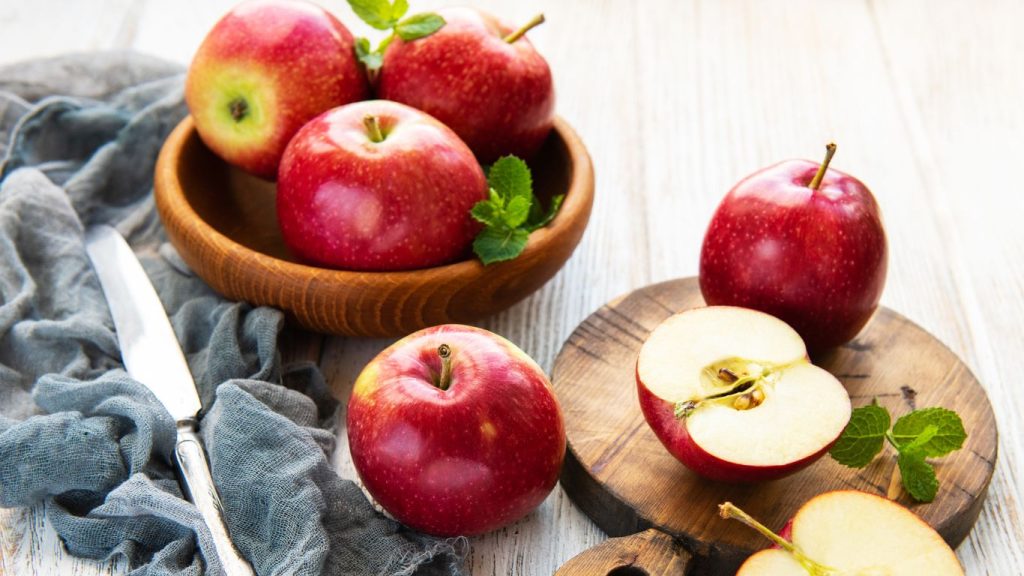
116 calories per 1 large apple (223 grams)
Apples are a powerhouse of nutrition. A cup (223 grams) of sliced apples contains approximately 116 calories and nearly 5 grams of dietary fiber. When combined with almond butter, which is rich in healthy fats and protein, the water and fiber in the apple slices create an unbeatable power snack.
2. Arugula
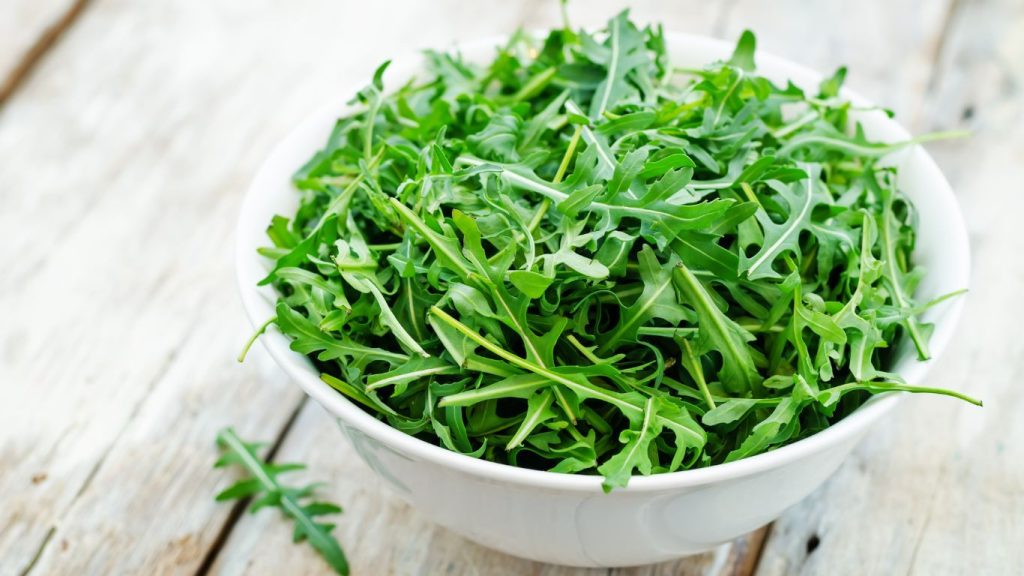
6 calories per 1 cup (20gram)
Arugula is an excellent base for a delectable salad, as it provides bulk with fiber and water without adding many calories. These power greens are also an excellent source of plant-based protein, which helps to keep you feeling full.
Its refreshing, peppery taste is perfect for salads. Moreover, arugula is packed with calcium, magnesium, vitamin K, vitamin C, and folate, providing an added nutritional boost to your meal.
3. Asparagus
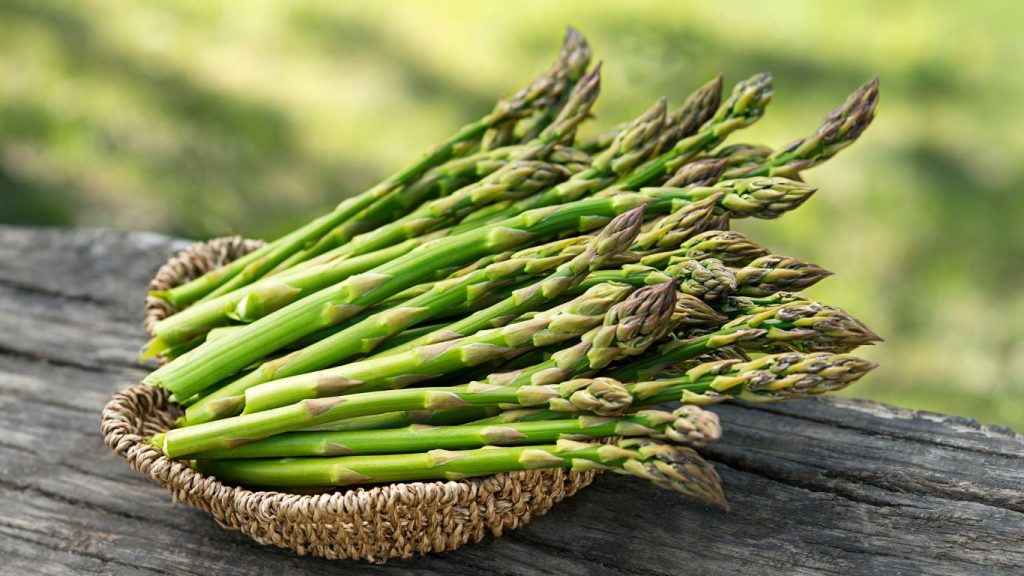
20 calories per 100 gram
Asparagus is abundant in insoluble fiber, which studies suggest can impede the secretion of hunger hormones and maintain stable blood sugar levels. All varieties of asparagus are nutritious, containing a variety of vitamins and minerals, in addition to antioxidant and anti-inflammatory plant compounds.
4. Beets
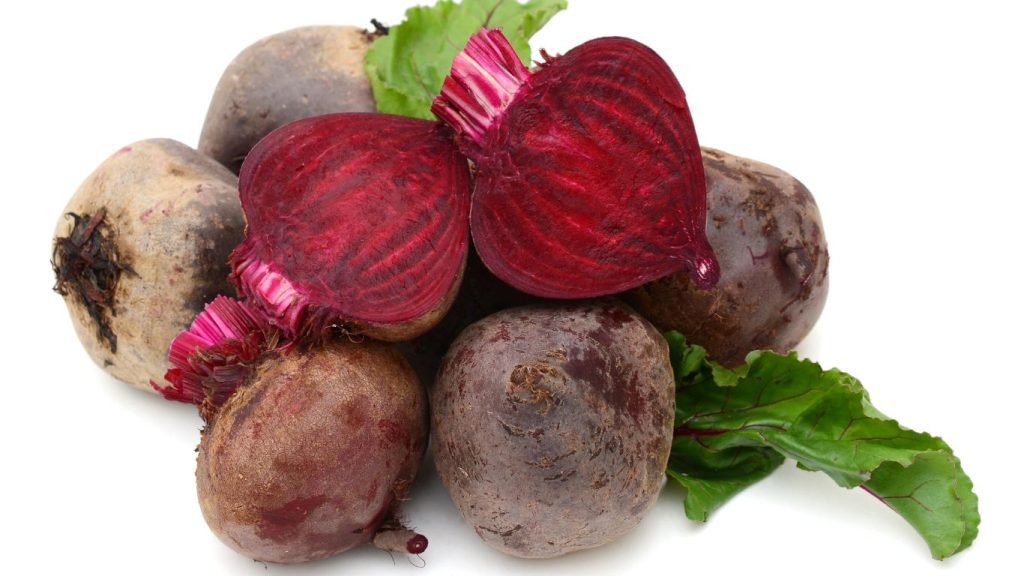
58.5 calories per 13 gram
Beets are a great source of essential nutrients such as folate and manganese, and they are loaded with phytonutrients like betalains and phenolic compounds that may enhance heart health. A single serving provides 13 g of carbohydrates, including 9.19 g of sugar and 3.81 g of fiber, as well as 2.19 g of protein. In addition, beets offer 17% of the daily value for folate and 12% of manganese.
5. Broccoli
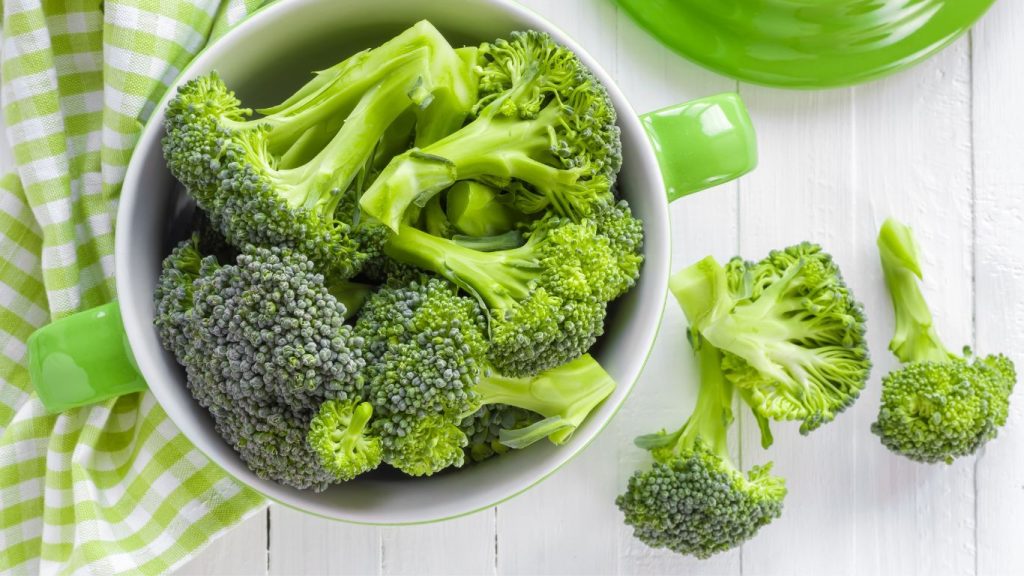
34 calories per 100 gram
Broccoli is a low-calorie vegetable with high fiber content. It is also rich in essential vitamins and minerals such as vitamins A, C, E, and K, iron, calcium, potassium, magnesium, selenium, and folate. Several studies suggest that individuals who consume substantial amounts of cruciferous vegetables, like broccoli, may have a lower risk of developing conditions such as heart disease and some cancers.
6. Brussels sprouts
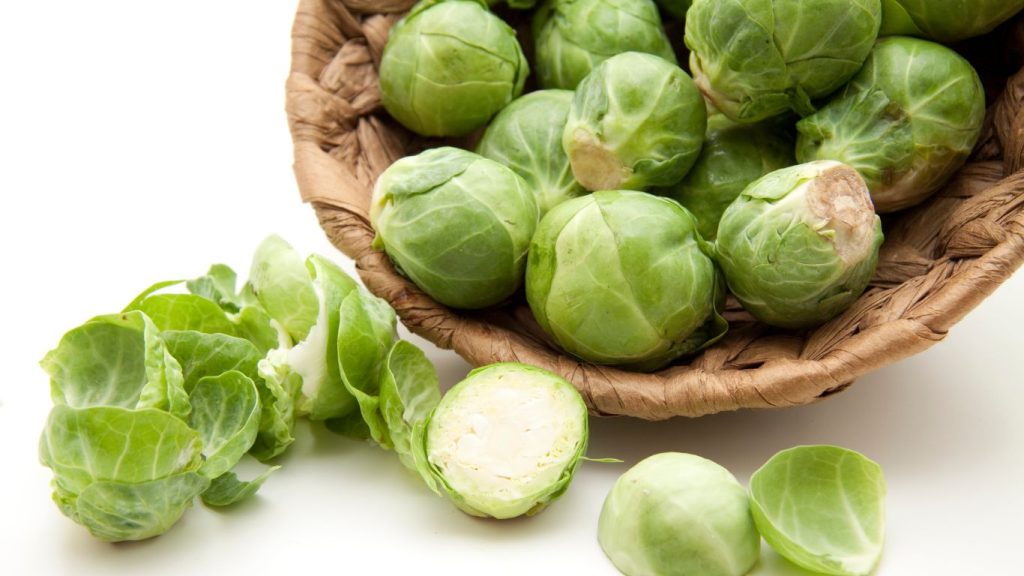
43 calories per 100 gram
Brussels sprouts, which resemble tiny cabbages, can be consumed either raw or cooked. Similar to broccoli, Brussels sprouts are part of the cruciferous vegetable family and are rich in vitamin C, a nutrient that helps protect cells from oxidative damage.
7. Cabbage
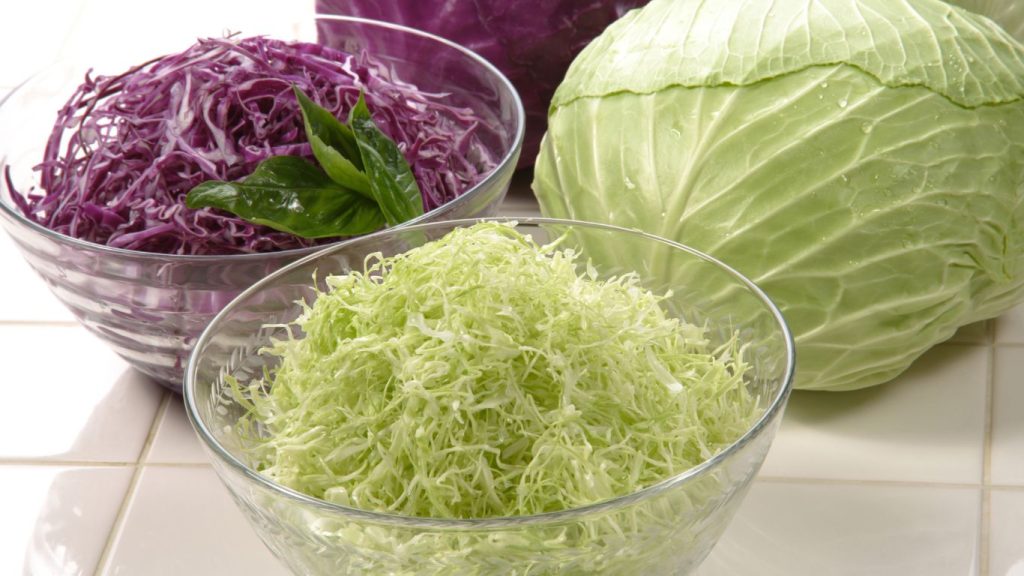
25 calories per 100 gram
Cabbage is yet another cruciferous vegetable that comes in various shades, including green, red, and white. It is frequently used in salads and coleslaws and is a prominent component of fermented foods such as kimchi and sauerkraut.
8. Carrots
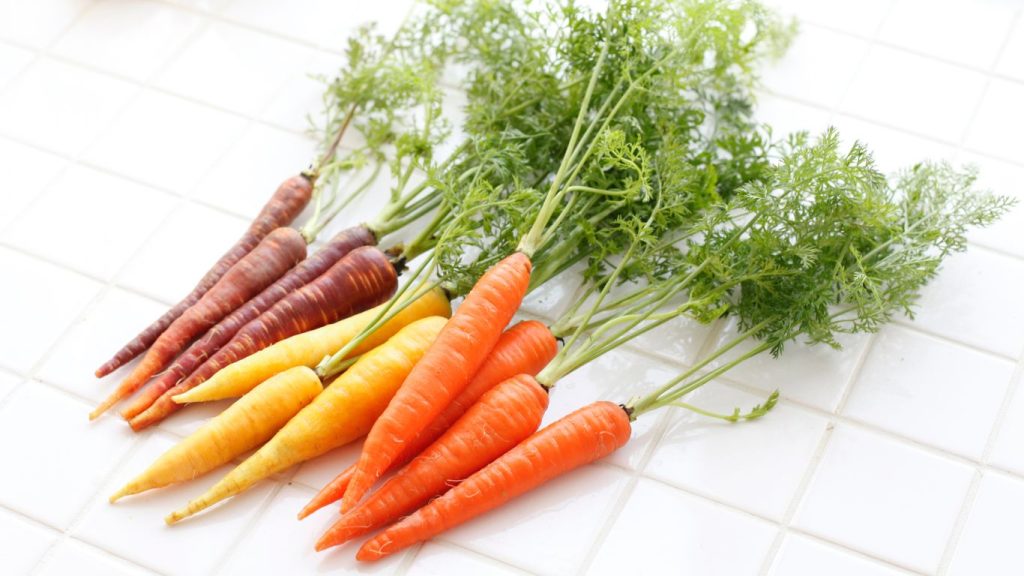
41 calories per 100 grams
Carrots are slightly sweet and crunchy vegetable that is rich in nutrients, providing almost 4 grams of fiber per cup. These crunchy sticks make an excellent pair with hummus or can be used as a smoothie ingredient. Despite the slightly higher sugar content in carrots, they are an excellent source of vitamin A and contain a significant amount of fiber, making them a healthy addition to your diet. So go ahead and enjoy them without any hesitation!
9. Cauliflower
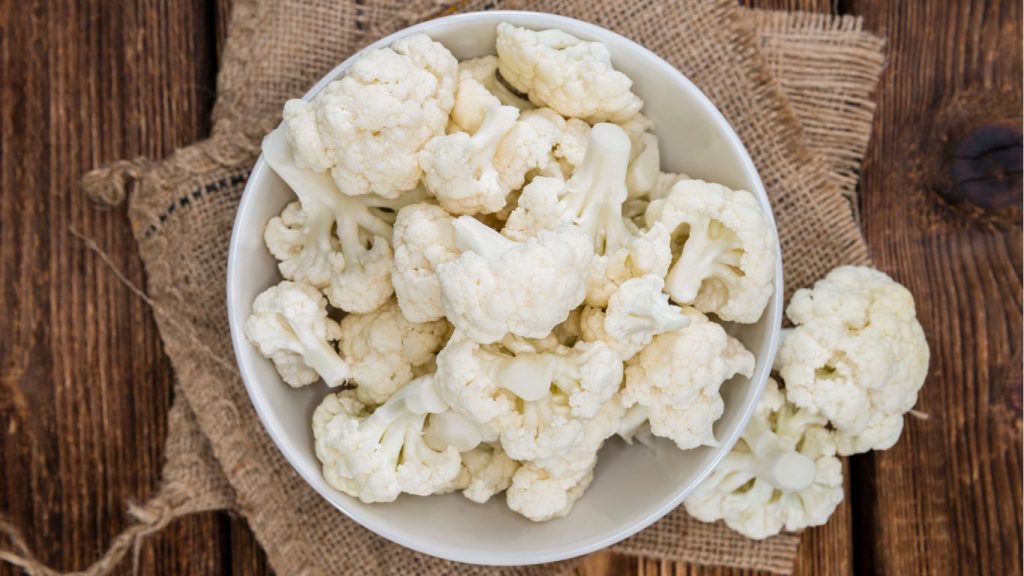
25 calories per 100 grams
Cauliflower is a highly versatile vegetable that can serve as a great source of vitamin C, potassium, and plant-based omega-3 fatty acids. Its popularity has grown in recent times due to its ability to substitute for higher-carb foods in many delicious dishes. For instance, cauliflower can be transformed into “rice” or a pizza crust, making it a popular choice among those following a low-carb diet.
10. Celery
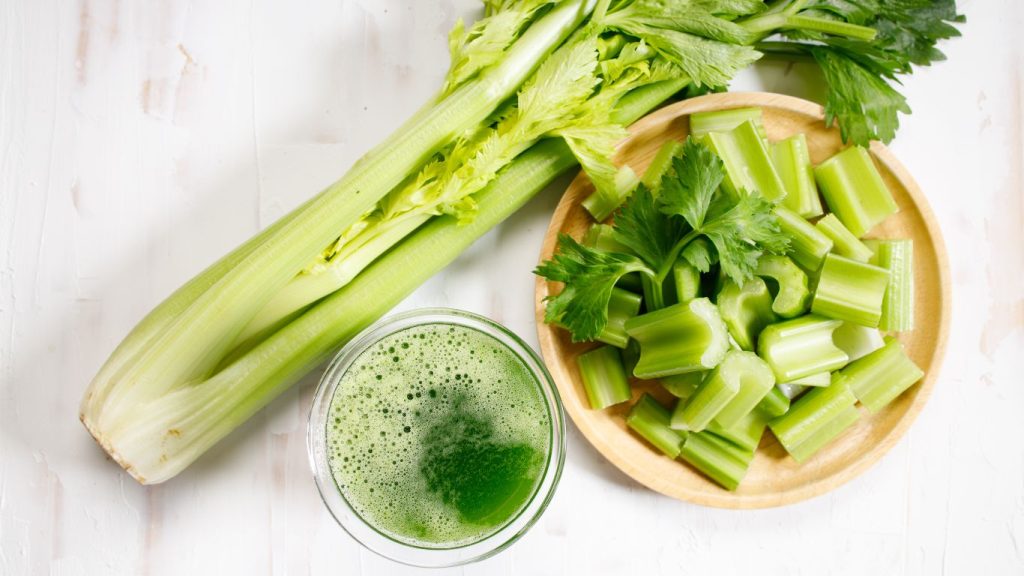
14 calories per 1 cup
Celery is a low-calorie food due to its high water content. It is considered one of nature’s lowest-calorie foods and is best consumed whole. Juicing celery may result in losing its fiber content, which is vital for slowing down digestion and promoting a feeling of fullness for an extended period.
11. Clementines
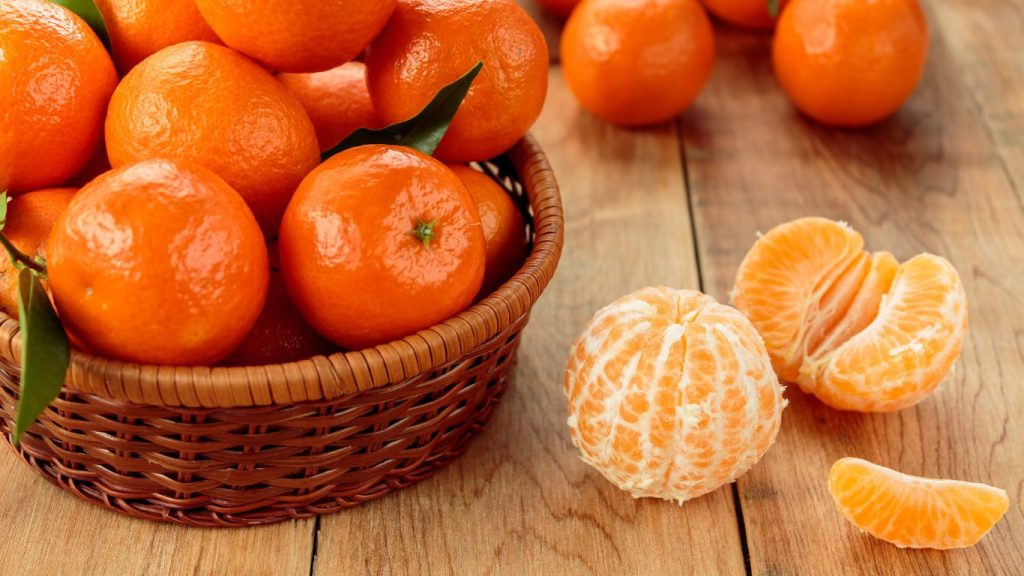
47 calories per 100 grams
Clementines are similar in appearance to mini oranges. They are recognized for their abundant supply of vitamin C and are as deliciously tangy as their larger counterparts. The best part is that each of these tiny citrus fruits contains just 35 calories, making them a low-calorie option.
12. Cucumbers
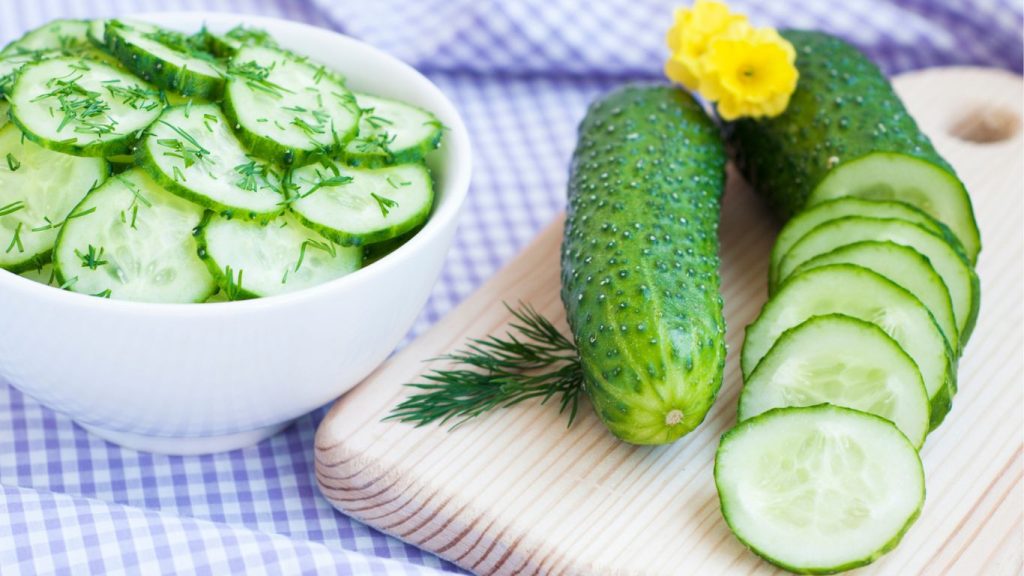
30 calories per 1 raw cucumber
Cucumbers are a refreshing vegetable that is often added to salads, and they can also be used to add flavor to water when mixed with fruits and herbs. In terms of calorie content, a whole cucumber containing only 30 calories far outweighs a handful of your favorite chips.
13. Grapefruit
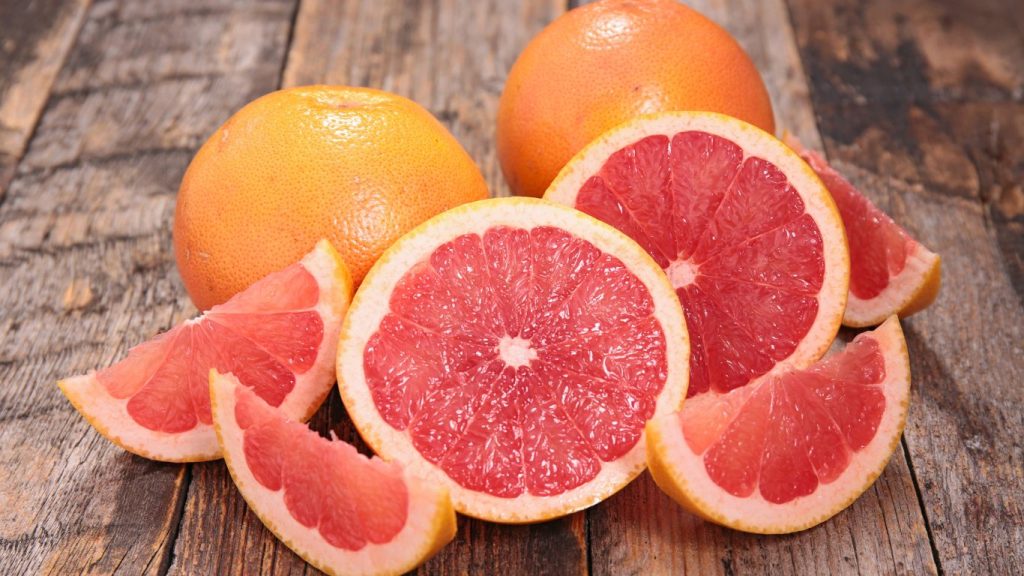
42 calories per 100 grams
Grapefruits and other citrus fruits are abundant in nutrients and beneficial plant compounds that possess antioxidant and anti-inflammatory properties. Including citrus fruits in your diet can promote the health of vital organs such as the heart and brain, as well as offer other health benefits.
14. Iceberg lettuce
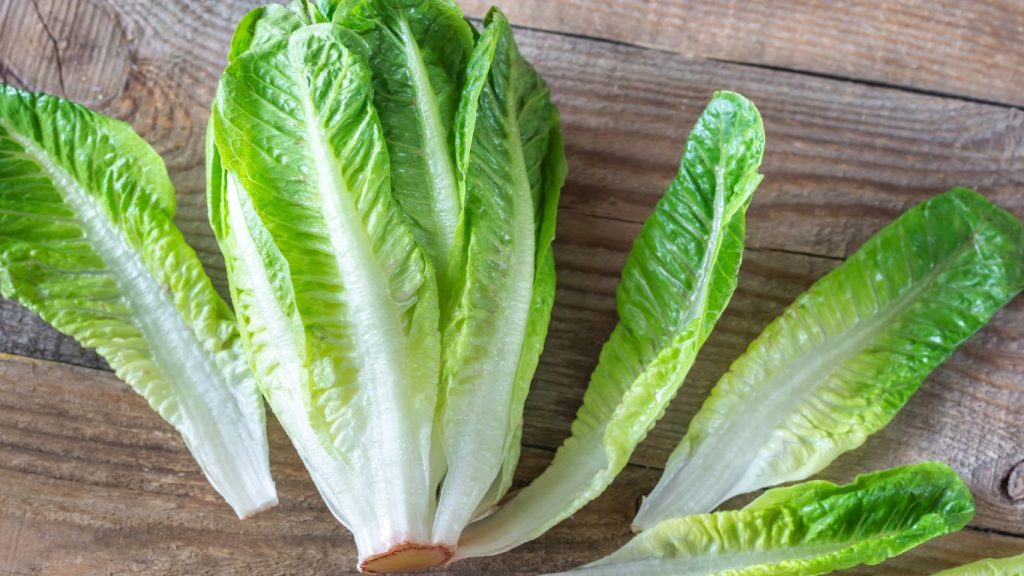
15 calories per 100 grams
Iceberg lettuce is recognized for its high water content and is frequently used in salads or as a topping for burgers and sandwiches. Despite the misconception that it is less nutritious than other lettuce varieties, iceberg lettuce is a good source of several essential nutrients, including vitamin K, provitamin A, and folate.
15. Kale
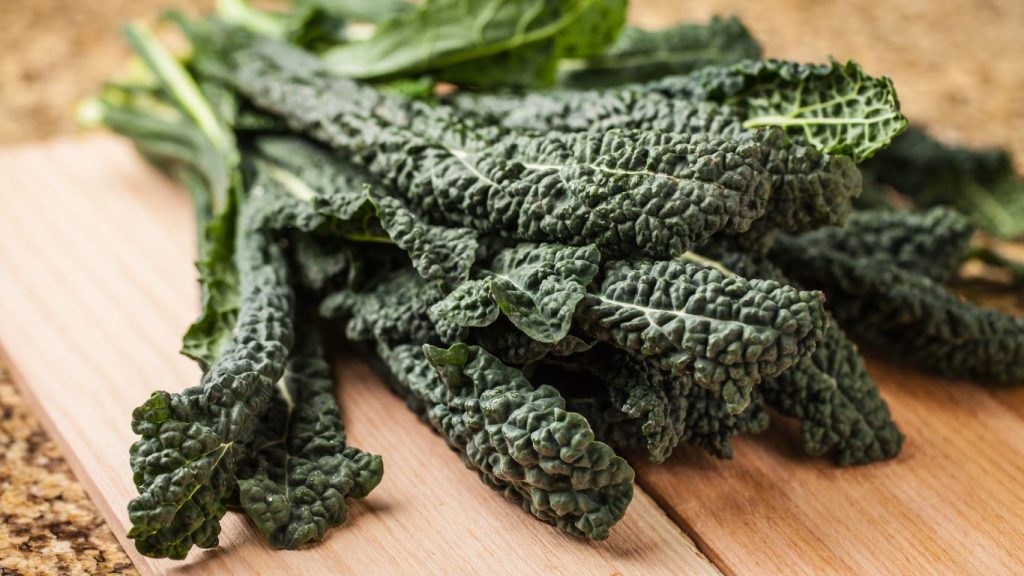
20 calories per 1 raw cup
Incorporating dark, leafy greens into your diet can be highly beneficial, and kale is a versatile option that can be added to salads, smoothies, and vegetable dishes. It is an exceptionally nutritious food, containing high levels of provitamin A, vitamin C, vitamin K, manganese, and copper.
16. Radishes
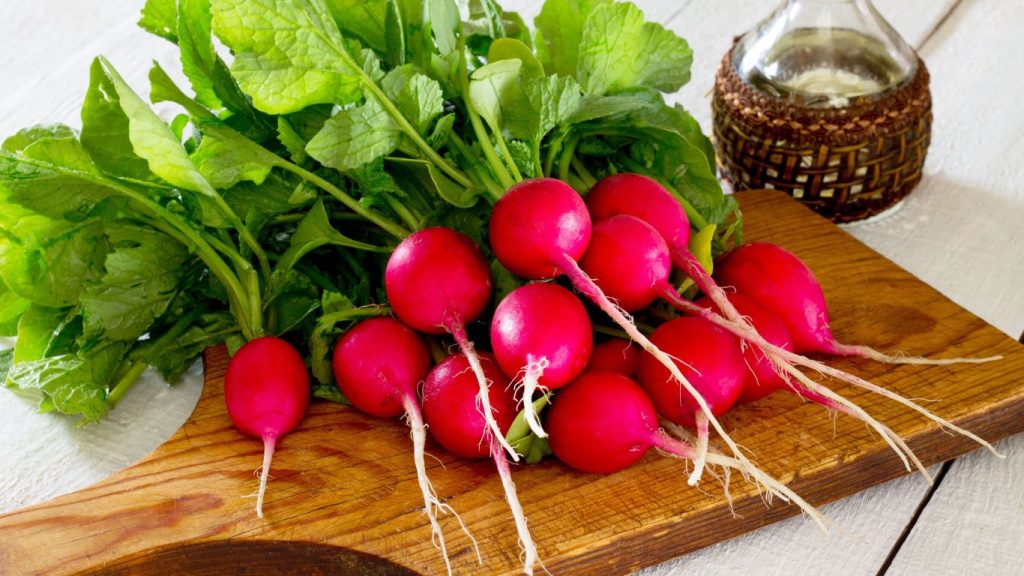
16 calories per 100 grams
Radishes are root vegetables with a crunchy texture and a mildly spicy taste. Available in a variety of colors, they make an attractive and nutritious addition to salads and grain bowls. Radishes are a rich source of beneficial nutrients such as vitamin C, potassium, and folate. If you’re craving a crunchy snack, rather than reaching for a packet of potato chips that can be around 150 calories, opt for a plate of sliced radishes with a sprinkle of sea salt for a low-calorie and satisfying snack.
17. Strawberries
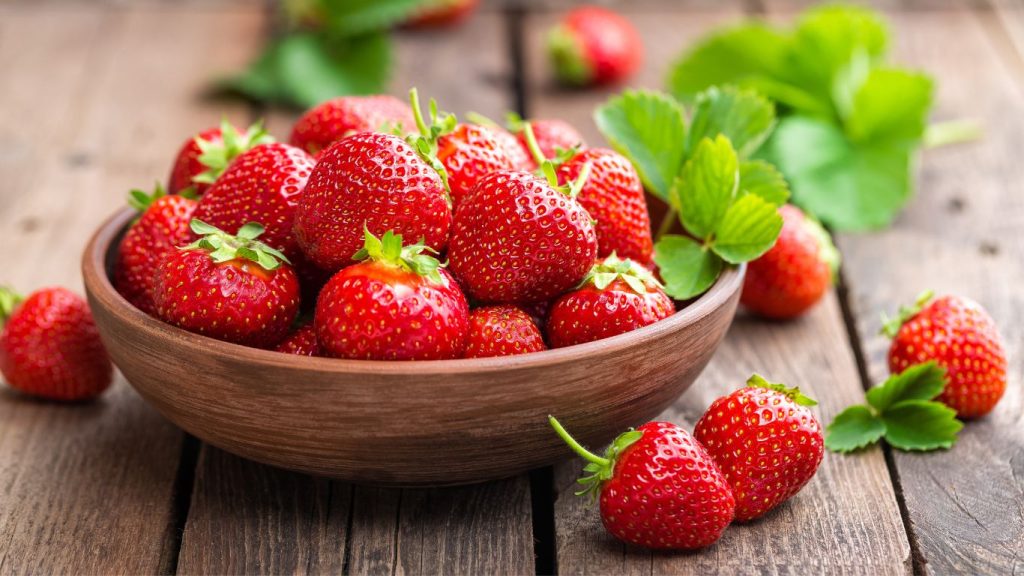
33 calories per 100 grams
Strawberries are a deliciously sweet and highly nutritious fruit that contain a unique type of fiber called pectin. This fiber can aid in slowing down digestion, keeping you feeling fuller for longer, and reducing the risk of blood sugar spikes.
Strawberries are versatile and pair well with both sweet and savory ingredients. Furthermore, studies have demonstrated that regularly consuming berries such as strawberries may help protect against various conditions, including Alzheimer’s and heart disease.
18. Spinach
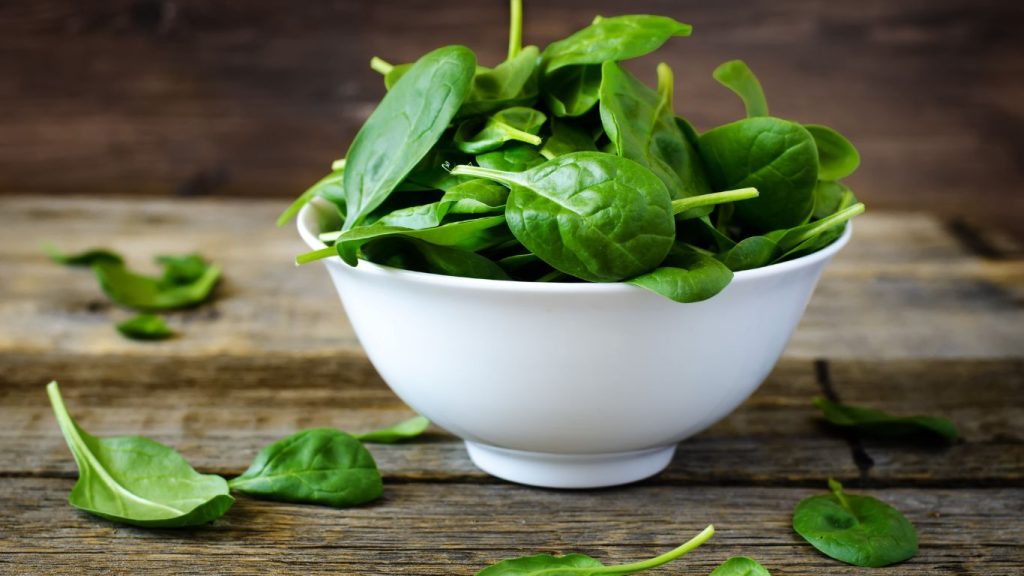
23 calories per 100 grams
Spinach is a nutrient-dense, low-calorie leafy green that is packed with vitamins and minerals. This versatile vegetable has a mild flavor and can be added to salads, pasta, and smoothies. Spinach is an excellent source of vitamin K, provitamin A, and folate.
Additionally, it contains bioactive compounds such as carotenoids lutein and zeaxanthin, which play a vital role in promoting eye health. Including spinach in your diet is a great way to fill up essential nutrients without consuming too many calories.
19. Tomatoes
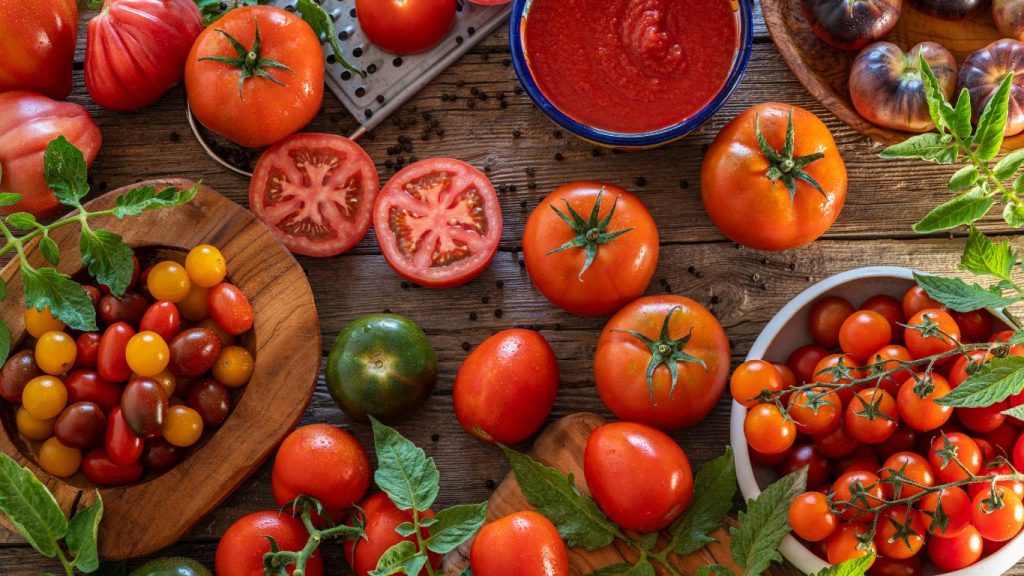
22 calories in 1 Tomato
Tomatoes are an excellent source of plant compounds, particularly lycopene, which offers protective benefits to the body. Research suggests that a diet rich in tomatoes may help reduce the risk of stroke, heart disease, and certain types of cancer.
Tomatoes are a versatile ingredient that complements a variety of dishes and can be enjoyed in raw, cooked, or pureed forms such as tomato sauce.
20. Watercress
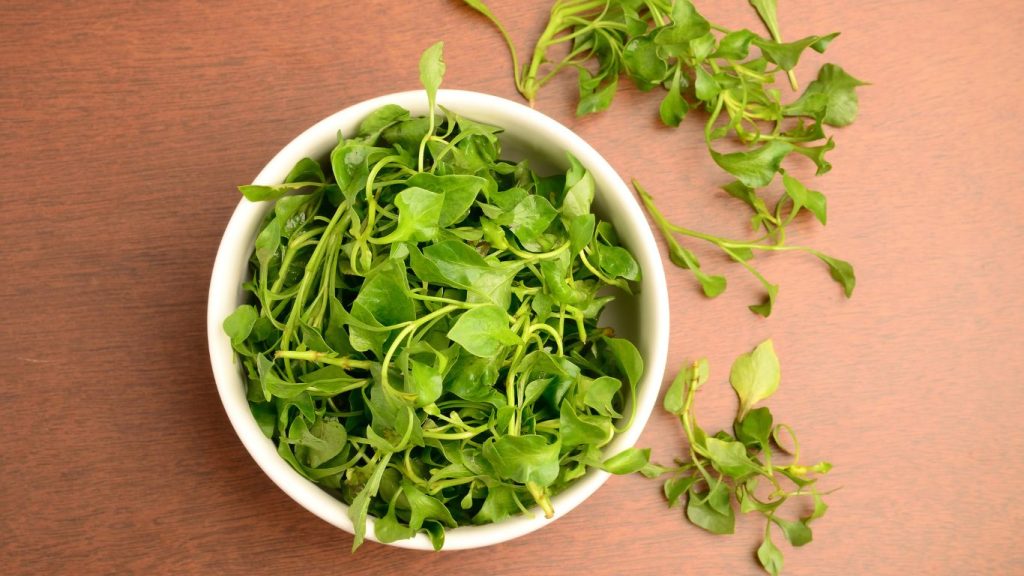
11 calories per 100 grams
Watercress is a leafy green that is commonly found in salads and tea sandwiches. Although it may not be as well-known as other greens, watercress is equally nutritious. With just 4 calories per cup (34 grams), this vegetable packs a powerful nutritional punch, providing 71% of the daily recommended value for vitamin K, 16% for vitamin C, and a whopping 120% for vitamin A.
21. Watermelon
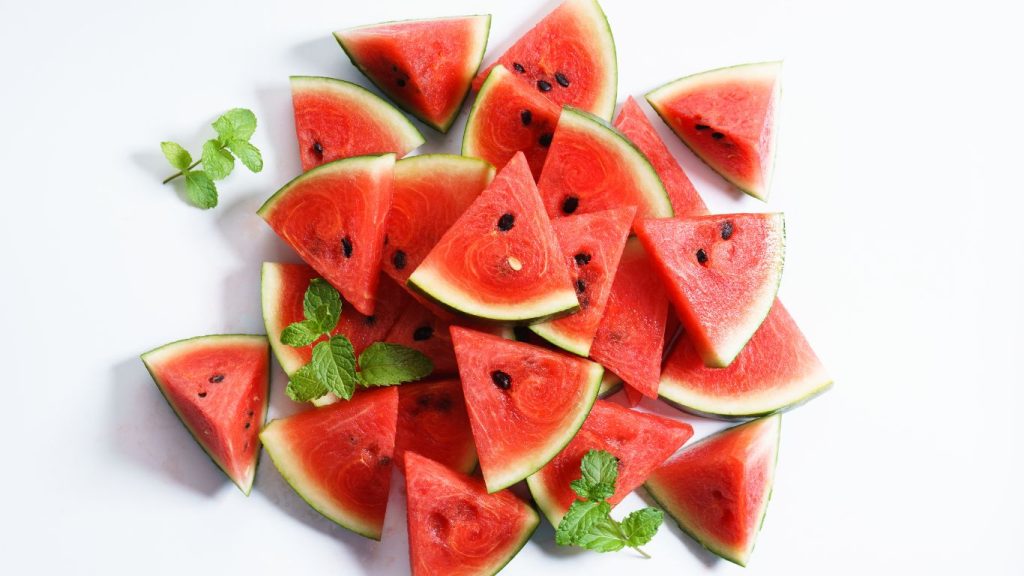
30 calories per 100 grams
Watermelon is a refreshing and sweet fruit that is perfect for a hot day. With its high water content, it is excellent for keeping you hydrated. In addition, watermelon has many benefits for your skin. It’s a great low-calorie option for a snack, with only 46 calories per cup.
This fruit is also a good source of vitamin C and lycopene, an antioxidant. So, whether it’s hot or not, watermelon makes a great snack option to keep you feeling full and nourished.
22. Oatmeal
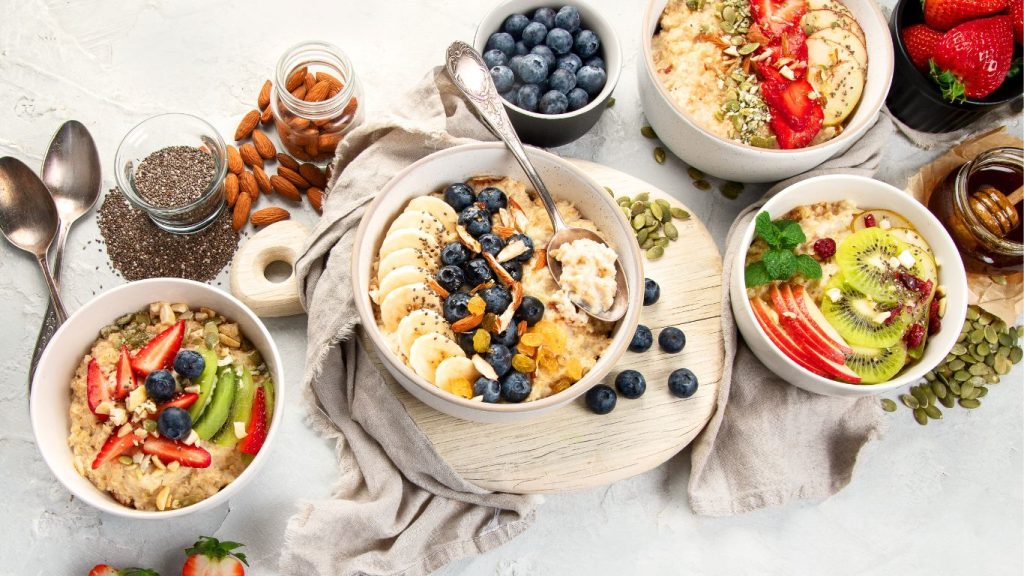
166 calories per 1 cup, cooked
Oats are a nutrient-dense food that is high in fiber, protein, and antioxidants. The beta-glucan, a soluble fiber found in oats, is known for slowing down digestion, reducing appetite, and promoting satiety. Adding berries to your overnight oats can make for a filling and low-calorie breakfast.
23. Raspberries
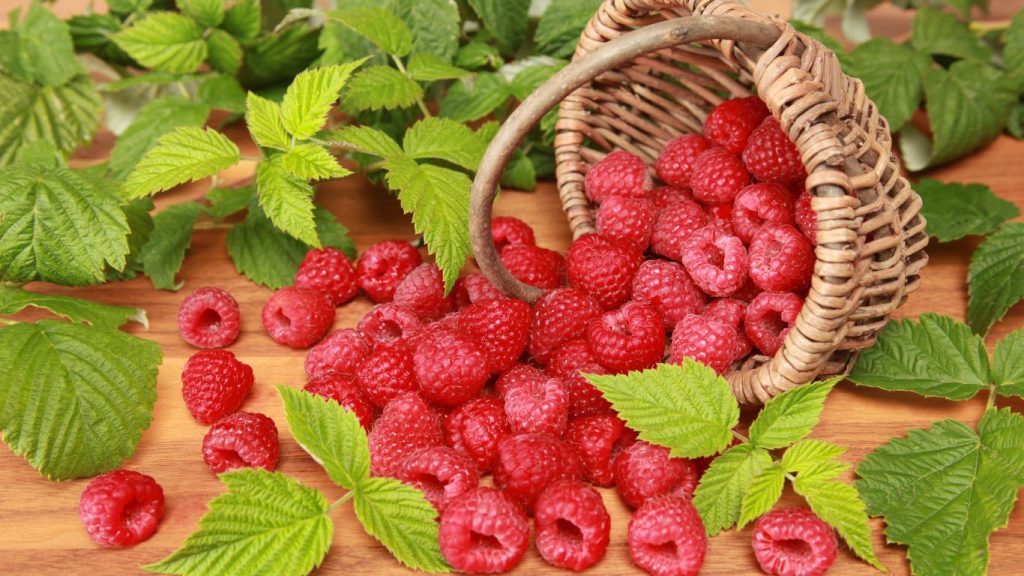
53 calories per 100 grams
If you’re in the mood for a sweet treat, consider reaching for some berries. Despite being low in calories, raspberries are packed with nutrients and 8 grams of fiber, which is around one-third of your recommended daily intake.
- Calories: 53
- Total Carbohydrate 12 g
- Dietary fiber 7 g
- Protein 1.2 g
- Vitamin C: 43%
- Magnesium: 5%
24. Cantaloupe
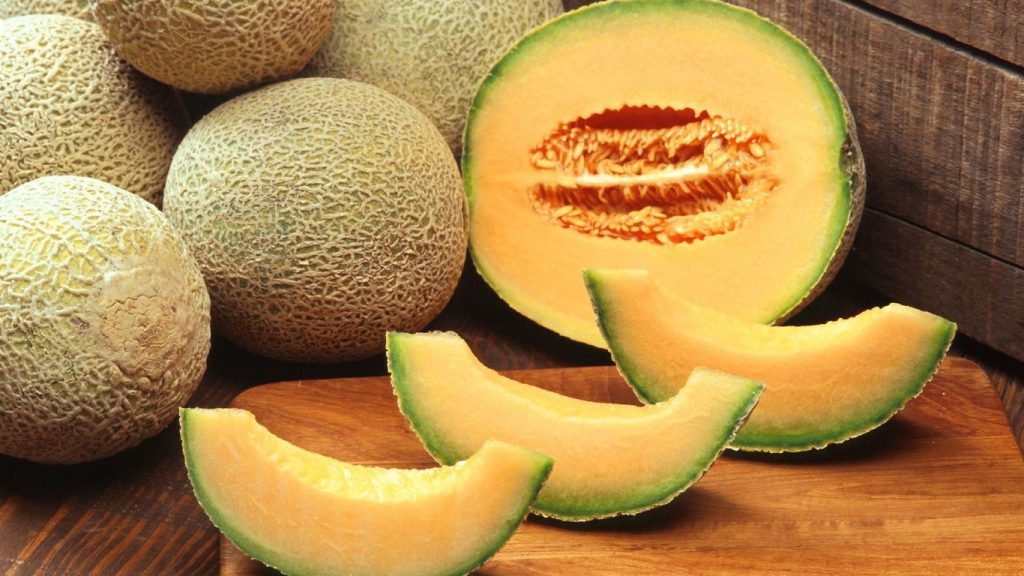
34 calories per 100 grams
Cantaloupe is a refreshing fruit with high water content, making it a filling snack that’s low in calories. It’s also a great source of vitamin C, providing 61% of the daily value per serving.
25. Zucchini
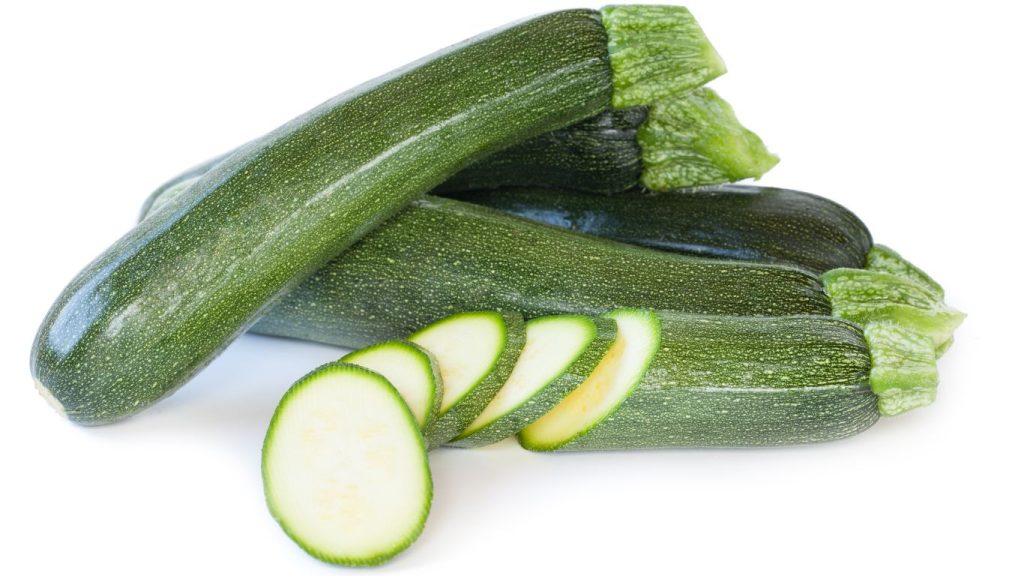
17 calories per 100 grams
Zucchini is a versatile summer squash with a delicate flavor that can be added to a variety of recipes. Despite its low-calorie count, it offers several nutritional benefits. One cup of raw, chopped zucchini (124g) provides only 21 calories, along with 1.5g of protein, 3.9g of carbohydrates, and 0.4g of fat. Additionally, zucchini is a great source of vitamins B6 and C.
26. Kiwi
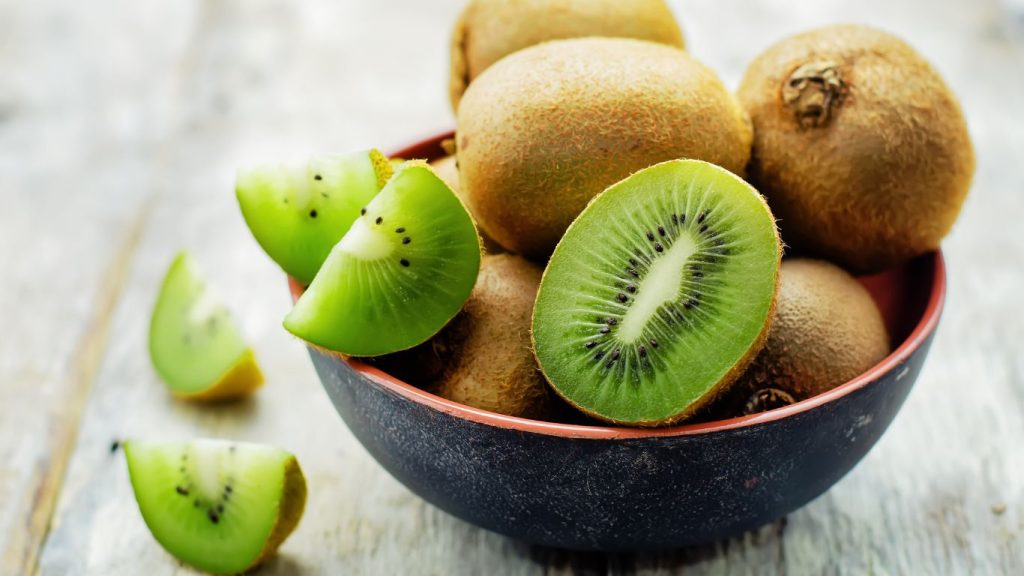
61 calories per 100 grams
Kiwis are a sweet option for those with a sweet tooth, and they also have a lot of fiber and vitamin C, which makes them a satisfying snack. Two kiwis offer 230% of your daily value for vitamin C and 70% of your vitamin K needs. In addition, kiwis contain potassium, vitamin E, and folate.
27. Greek Yogurt
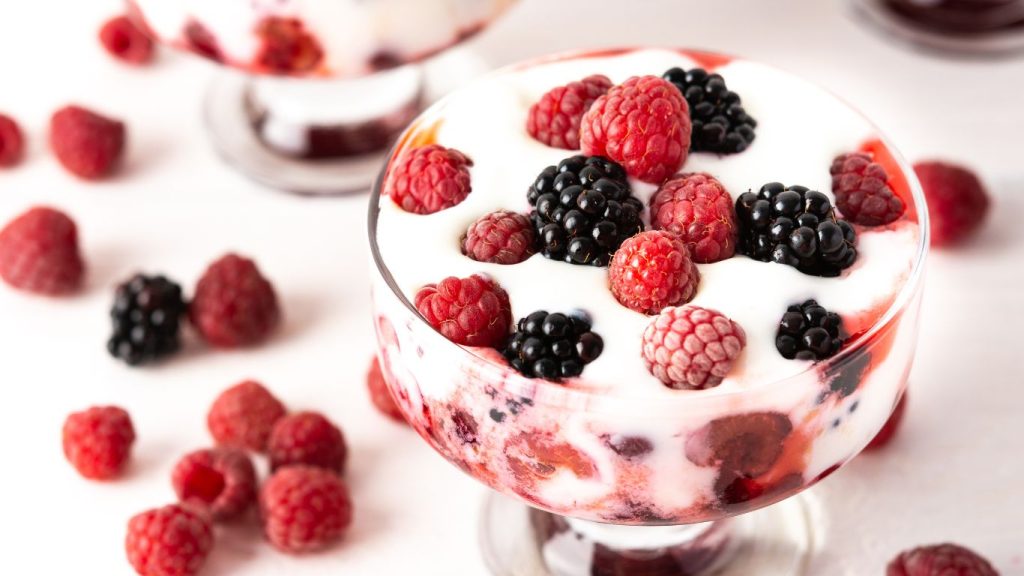
59 calories per 100 grams
Non-fat plain Greek yogurt is a satisfying low-calorie snack that provides a whopping 14 grams of protein per container. It’s also loaded with probiotics that promote gut health. Beware of flavored varieties, which may contain added sugars. To add sweetness, try stirring in some honey and berries for a delicious and nutritious treat.
28. Chia seeds
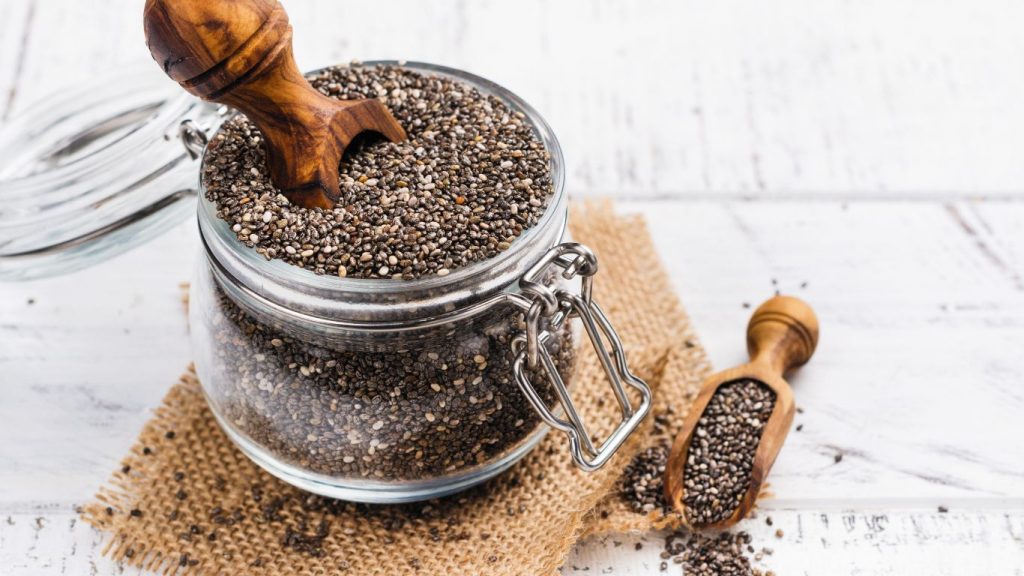
75 calories in 1 tbsp (15 g)
Chia seeds are considered a superfood for good reason – they’re low in calories but high in both protein and fiber. These tiny seeds are particularly rich in soluble fiber, which expands in your stomach and helps you feel full. Incorporating just two servings of chia seeds into your daily diet can help suppress cravings and reduce overall hunger.
29. Eggs
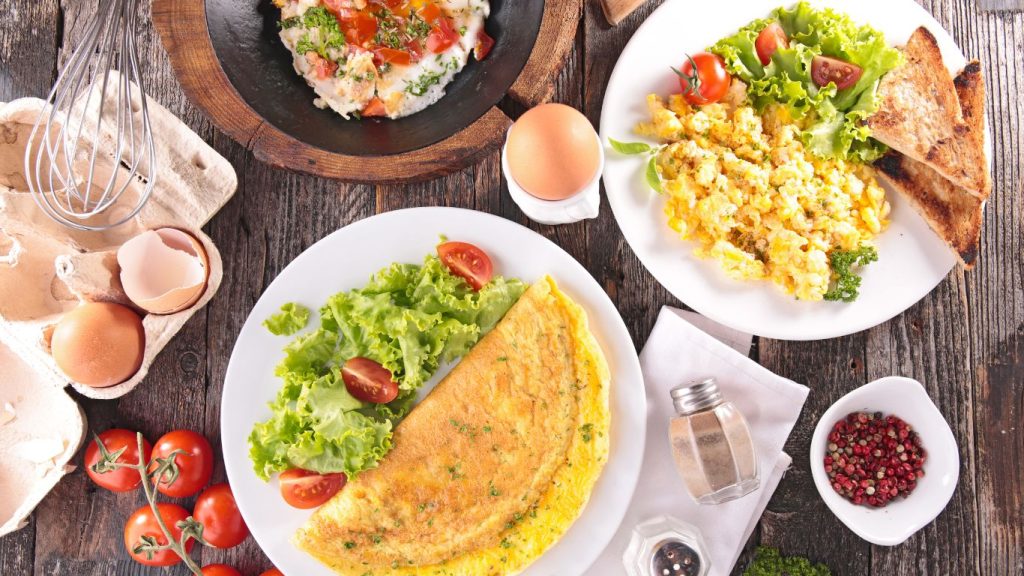
66 calories in 1 medium egg
Eggs, high protein, and low-calorie breakfast food have been proven to reduce hunger throughout the day, increase feelings of fullness, and decrease the production of the hunger hormone ghrelin. They also provide a wealth of essential vitamins, including B vitamins, vitamin A, vitamin D, vitamin E, and vitamin K, and are a rich source of choline, an important nutrient that supports cell growth, brain health, and bone health.
30. Banana
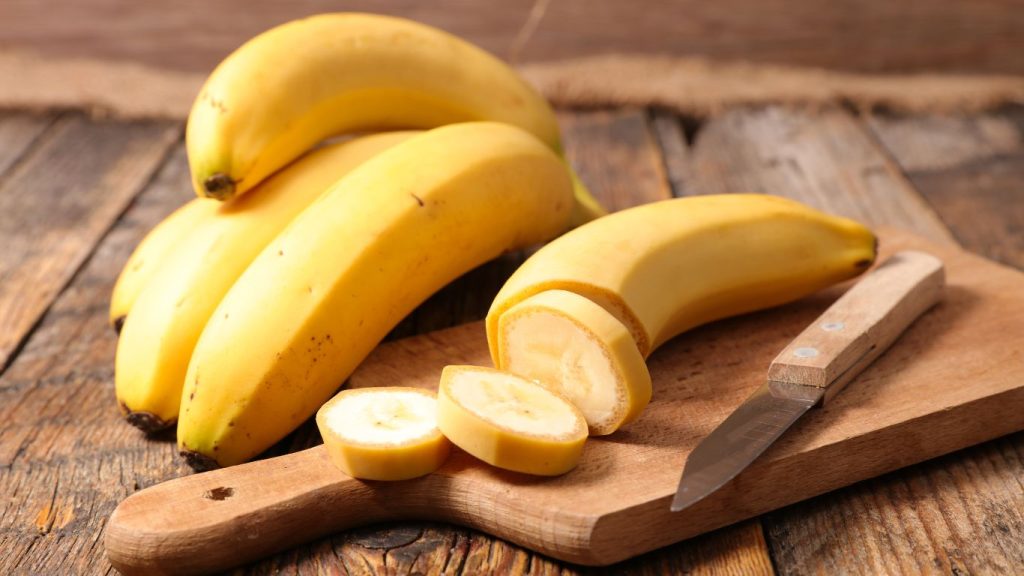
66 calories in 1 medium size (118g)
Not only are bananas convenient for a quick snack, but they are also a nutrient powerhouse. A medium-sized banana contains only 66 calories and is packed with fiber, magnesium, potassium, and B vitamins, making it a healthy and satisfying choice.
The Bottom Line
Choosing foods solely based on their calorie count is not the best approach. Instead, prioritize nutrient density when selecting your meals. This means choosing foods that offer a high amount of nutrients relative to the number of calories they contain.
Incorporating a variety of lower-calorie foods such as fruits and vegetables, along with higher-calorie foods rich in protein and healthy fats, can help you achieve a well-rounded and nutritious diet.
While it’s important to watch your calorie intake, it’s equally important to ensure that your body is receiving sufficient calories to function optimally and keep you feeling your best. It is possible to maintain a healthy weight or lose weight while still enjoying tasty and filling foods.
When choosing what to eat, be mindful not only of calorie content but also of the amount of water, fiber, and protein present in the food.





achat kamagra commander acheter en
medicament kamagra tablette pharmacie
get enclomiphene australia cheap
purchase enclomiphene real price
online order androxal price london
will cialis or androxal show up in a drug test
buy flexeril cyclobenzaprine generic equivalent
how to order flexeril cyclobenzaprine australia online generic
buy cheap dutasteride generic united states
how to buy dutasteride buy hong kong
ordering fildena generic real
free shipping fildena
purchase gabapentin online from canada
buying gabapentin canada how to buy
ordering itraconazole purchase from uk
overnight delivery of itraconazole with no prescription
online order avodart buy online canada
buying avodart generic online canada
buy staxyn generic alternatives
order staxyn cheap pharmacy
get xifaxan uk in store
xifaxan no prescription canada
how to order rifaximin purchase tablets
rifaximin at discount price
kamagra ed droga
sleva kanadská lékárna kamagra